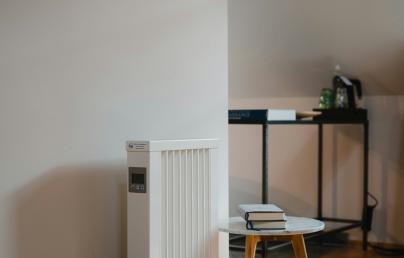Renewable heating: The exit to Europe´s gas crisis

Renewable heating: The exit to Europe´s gas crisis
With gas prices skyrocketing, energy poverty threatening millions, Europe’s dependence on Russian gas at stake, and the EU’s 2030 deadline to slash emission drawing closer, it has never been clearer that we need to ramp up the heating transition. Europe is entering a crucial legislative moment to ensure all households can benefit from renewable heating.
Not a day has gone by in the past months without gas making the headlines, from soaring prices, the conflict with Russia to the climate crisis. It is now time to properly look at the sector that keeps gas flowing through Europe’s veins: heating.
As the largest energy end-use sector in Europe, ahead of transport and electricity generation, heating appears to be the elephant in the room in the public climate debate.
Especially slipping under the radar in the green talks in Europe is the renewable alternative to fossil fuel heating, which gets little press compared to hyped climate solutions like electric vehicles, hydrogen-based solutions or new technologies like carbon capture and storage (CCS). This is despite the fact that these renewable solutions, the humble heat pumps and solar thermal heating, are mature, readily available, non-emitting technology that holds massive potential to reduce emissions and energy bills.
Time has come to break our toxic relationship with fossil gas and move towards renewable heating which holds all the keys to tackling the current energy and climate challenge. A heating manifesto was launched together with six major European NGOs calling on policymakers to ensure the transition towards renewable and affordable heating reaches all households in Europe.
Up to 1 in 4 households in the EU cannot afford to adequately heat their homes. The global energy prices crisis has only escalated energy poverty rates by exposing roughly 80 million people across Europe to the mercy of a volatile energy market this winter.
Behind this worrying trend, there are deep and structural causes. Firstly, Europe’s over-reliance on fossil gas for domestic heating, 90% of which is imported from countries outside the bloc mostly from Russia. Secondly, the overwhelming energy inefficiency of the European building stock with 75% of the buildings in the EU failing energy efficiency standards. Lastly, the unaddressed social injustice impacts the most vulnerable household who cannot afford the upfront costs of switching to renewable heating and energy efficiency measures.
Read the full article here.


